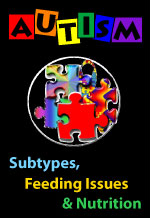 National Humor Month was founded in 1976 by comedian and best-selling author Larry Wilde, Director of The Carmel Institute of Humor. It is designed to heighten public awareness on how the joy and therapeutic value of laughter can improve health, boost morale, increase communication skills and enrich the quality of one’s life.
National Humor Month was founded in 1976 by comedian and best-selling author Larry Wilde, Director of The Carmel Institute of Humor. It is designed to heighten public awareness on how the joy and therapeutic value of laughter can improve health, boost morale, increase communication skills and enrich the quality of one’s life.
“Since April is often bleak and grim and taxes are due on the 15th, it can be one of the most stressful times of the year,” says Wilde, author of 53 books on the subject of humor. “Besides,” adds Wilde, “it’s the only month that begins with All Fool’s Day — a day which has sanctioned frivolity and pranks ever since the 1500’s.”
Humor as a tool to lift ailing spirits is an established notion supported by scientific research. The curative power of laughter and its ability to relieve debilitating stress and burnout may indeed be one of the great medical discoveries of our times.
 The Use of Humor in Therapy is a 2-hour online continuing education (CE) course by Dr. Louis R. Franzini that reviews the risks and benefits of using humor in therapy and the relevant historical controversies of this proposal.
The Use of Humor in Therapy is a 2-hour online continuing education (CE) course by Dr. Louis R. Franzini that reviews the risks and benefits of using humor in therapy and the relevant historical controversies of this proposal.
Should therapists and counselors use humor as a therapeutic technique? If so, should they be formally trained in those procedures before their implementation? The paucity of rigorous empirical research on the effectiveness of this form of clinical intervention is exceeded only by the absence of any training for those practitioners interested in applying humor techniques. In this course a representative sample of its many advocates’ recommendations to incorporate humor in the practice of psychological therapies is reviewed.
Therapeutic humor is defined, the role of therapists’ personal qualities is discussed, and possible reasons for the profession’s past resistance to promoting humor in therapy are described. Research perspectives for the evaluation of humor training are presented with illustrative examples of important empirical questions still needing to be answered. Course #21-02 | 2015 | 24 pages | 14 posttest questions
This online course provides instant access to the course materials (PDF download) and CE test. After enrolling, click on My Account and scroll down to My Active Courses. From here you’ll see links to download/print the course materials and take the CE test (you can print the test to mark your answers on it while reading the course document). Successful completion of the online CE test (80% required to pass, 3 chances to take) and course evaluation are required to earn a certificate of completion.
Professional Development Resources is approved by the American Psychological Association (APA) to sponsor continuing education for psychologists; the National Board of Certified Counselors (NBCC ACEP #5590); the Association of Social Work Boards (ASWB Provider #1046, ACE Program); the American Occupational Therapy Association (AOTA Provider #3159); the Commission on Dietetic Registration (CDR Provider #PR001); the Florida Boards of Social Work, Mental Health Counseling and Marriage and Family Therapy (#BAP346), Psychology & School Psychology (#50-1635), Dietetics & Nutrition (#50-1635), and Occupational Therapy Practice (#34); the Ohio Counselor, Social Worker & MFT Board (#RCST100501); the South Carolina Board of Professional Counselors & MFTs (#193); and the Texas Board of Examiners of Marriage & Family Therapists (#114) and State Board of Social Worker Examiners (#5678).




















